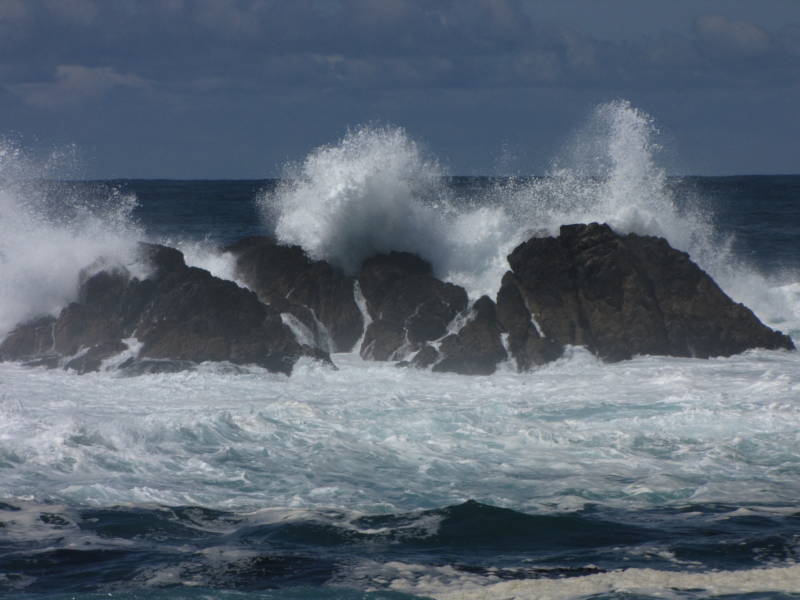
Scientists and planners expect the Bay Area to face a host of water-related threats in the coming decades due to climate change, including flooding due to rising seas and summer water shortages due to warmer temperatures and a shrinking Sierra snowpack.
A new analysis released Tuesday from the non-profit Natural Resources Defense Council catalogs these threats, for San Francisco, and for 11 other American cities, including Los Angeles. The study also looks at how prepared the cities are to adapt to these climate challenges. It finds, in general, that San Francisco is leading the way when it comes to being prepared.
“San Francisco is doing a good job laying the groundwork,” said Michelle Mehta, the lead author of the study. “The first step is coming up with really robust science-based plans, and so far San Francisco looks like they are doing a good job of that.”
She said San Francisco is particularly vulnerable to flooding due to rising seas, which, according to current projections, could rise 55 inches by the end of the century.
According to the report:
“High-sea-level events will cause flooding, erosion, damage to coastal structures and real estate, and salinity intrusion, particularly of low-lying land bordering San Francisco Bay and the Sacramento-San Joaquin River Delta. Increased salinity in the Delta would degrade the quality and reliability of the fresh water supply used for drinking water and agricultural purposes. Shoreline development located in the area’s 100-year floodplain could be subject to a 100 percent chance of flooding by mid-century. Sea level rise also threatens critical infrastructure. Approximately 235 hazardous material facilities would be at risk of a 100-year flood with a 55-inch rise in sea level. Wastewater treatment facilities, 12 power plants, 1,900 miles of roads and highways, and two major airports also would be vulnerable with a 55-inch rise.
The report also finds San Francisco vulnerable to summer water shortages due to warmer temperatures that will cause more of the state’s precipitation to fall as rain rather than snow and will force the Sierra snowpack to melt earlier in the year, “altering traditional runoff patterns and complicating water supply management.”
The good news, said Mehta, in that San Francisco is paying attention.
“San Francisco is, I think, ahead of the curve compared to other cities in terms of their greenhouse gas mitigations and in terms of looking how to become more resilient to these impacts,” she said.
The report lists some of San Francisco’s climate change strategies and cites them as, “examples of the steps that communities across the country should consider.” According to the report:
- In 2008, the San Francisco Board of Supervisors set new goals to reduce emissions by 25 percent below 1990 levels by 2017, 40 percent by 2025, and 80 percent by 2050.
- In November 2010, the city formed an interagency task force to develop policies to address potential future flood associated with sea level rise.
- The San Francisco Public Utilities Commission (SFPUC) is working with the National Oceanic and Atmospheric Administration (NOAA) to conduct an assessment of how climate change will impact the SFPUC system.
- The San Francisco Bay Conservation and Development Commission (BCDC), which is the state agency responsible for regulating development in the Bay Area, has proposed incorporating sea level rise scenarios in the permitting process, to develop a longterm strategy that considers local impacts of climate change, and to include policies that promote wetland protection, creation, enhancement and migration.
The report singles out Los Angeles as being particularly vulnerable to water-related climate change impacts, citing rising seas and increasing temperatures that will both likely affect water supply, and recommends that the city continue to work to reduce water consumption and supplement supply with reclaimed wastewater and stormwater.
